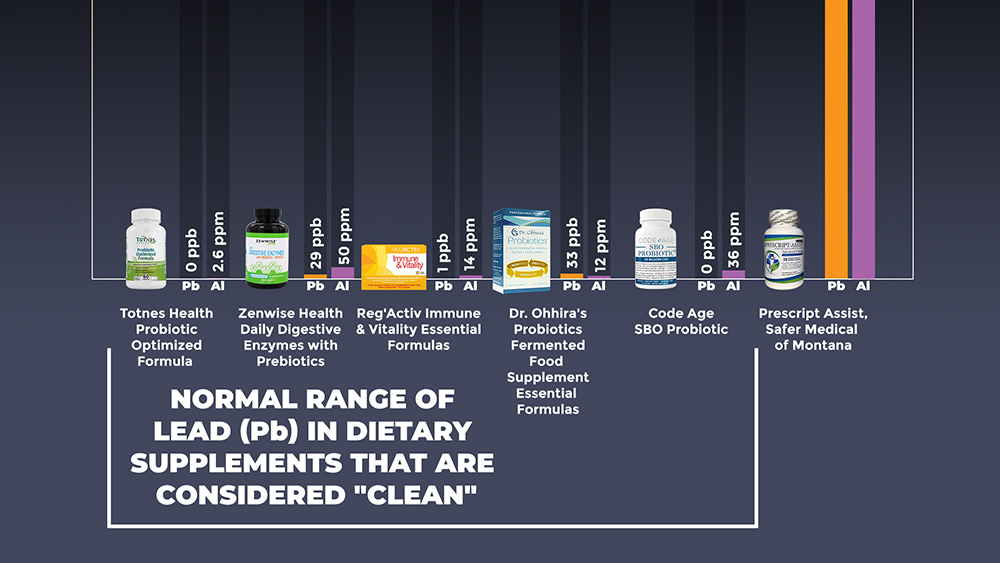Get out of the hospital ASAP: Vitamin C can mean shorter ICU stays, according to research
08/19/2019 / By Melissa Smith

Researchers found a way to help people get out of the hospital as soon as possible. A new meta-analysis published in the journal Nutrients suggests that the administration of vitamin C can shorten the length of stay of a patient in the intensive care unit (ICU) on average by about eight percent.
For the meta-analysis, researchers from the University of Helsinki in Finland and the University of Sydney in Australia evaluated whether vitamin C influences the length of stay in the ICU and duration of mechanical ventilation. The researchers drew data from earlier clinical trials that showed vitamin C supplements improved the overall health of patients, as well as improvements in metabolism. Overall, they gathered 18 trials, and 12 of which were included in the meta-analysis on the length of stay that involved 1,766 patients.
After analyzing the pooled data, the researchers found that on average, vitamin C administration shortened ICU stay by 7.8 percent. In six trials, oral administration of vitamin C with an average dose of 2 g per day reduced the length of ICU stays on average by 8.6 percent. In three trials in which patients needed mechanical ventilation for more than 24 hours, vitamin C reduced the duration of mechanical ventilation by 18.2 percent.
“Vitamin C is a safe, low-cost essential nutrient. Given the consistent evidence from the trials published so far, vitamin C might be administered to ICU patients, although further studies are needed to find out optimal protocols for its administration,” the Australian and Finnish researchers said.

|
Discover how to prevent and reverse heart disease (and other cardio related events) with this free ebook: Written by popular Natural News writer Vicki Batt, this book includes everything you need to know about preventing heart disease, reversing hypertension, and nurturing your cardiac health without medication. Learn More. |
The researchers concluded that because of the diverse positive effects of vitamin C on medical conditions, as well as the accumulated evidence for low vitamin C levels and increased vitamin C metabolism in critically ill patients, vitamin C might shorten ICU stay and other practical outcomes without any restrictions on the specific medical conditions that caused the stay in the ICU.
Low blood vitamin C levels common among hospital patients
Patients in hospitals often have very low vitamin C levels. Vitamin C metabolism is changed in many conditions that involve physiological stress, including burns, infections, surgery, and traumas, and because of this, vitamin C levels can drop significantly.
In healthy people, 0.1 g per day of vitamin C can maintain a normal plasma level. However, for critically ill patients, they need up to 4 g per day to increase their plasma vitamin C levels to the range of normal healthy people. For this reason, high vitamin C doses may be needed to make up for the increased metabolism in critically ill patients.
A study published in BMC found that the recommended amounts of vitamin C for critically ill patients are not enough. In the study, researchers from New Zealand looked at the plasma vitamin C levels of patients in the ICU who were all critically ill, suffering from either sepsis or severe heart problems. They assessed how vitamin C levels varied depending on infection status and determined if normal ICU nutritional support was enough to meet the vitamin C needs of critically ill patients.
The researchers found that despite an average daily intake of 125 milligrams (mg) of vitamin C per day, and 200 mg in patients receiving nourishment through IV, the patients still had low blood vitamin C levels. The actual blood vitamin C levels of the patients were only a third of what one would expect, given the amount of supplementation.
Moreover, vitamin C levels were significantly lower in septic shock patients than non-septic patients. They also had higher levels of inflammation than non-septic patients.
The team concluded that critically ill patients may need over 2,000 mg of vitamin C a day to normalize plasma levels. This can be increased to 3,000 mg per day to raise the nutrient to saturating levels. (Related: Scientific research finds higher doses of vitamin C result in greater beneficial health effects.)
Sources include:
Tagged Under: alternative medicine, disease treatments, healing, Hospitals, ICU, metabolism, natural cures, natural medicine, natural remedies, nutrients, prevention, remedies, supplements, vitamin C, vitamins


















